 Written by ContentPowered.com
Written by ContentPowered.com
In a move that shocked a lot of people hoping to make a quick million, Facebook made a major addition to their ad policies. Specifically, they added a new entry on their list of prohibited content. Even more specifically, Facebook is banning everything related to cryptocurrencies.
You can read their blog post here. The new policy states: “Ads must not promote financial products and services that are frequently associated with misleading or deceptive promotional practices, such as binary options, initial coin offerings, or cryptocurrency.”
Facebook, as they state in their blog post, wants people to have no fear about the quality of the services on the other side of the ads on their platform. If you see an ad and click on it, you should be guaranteed that the product or service on the other side is not a scam.
Unfortunately, far too many cryptocurrency products and services right now are scams. A huge number of alt-coin “initial coin offerings” and coin-related services end up being cut-and-run scams. Hell, there’s an alt-coin named PonziCoin, and people still bought into it! The irony is lost.
This is a pretty big blow to any crypto company looking to advertise. Even something as simple as saying you can now pay for your service in Bitcoin is prohibited, since you’re using the term Bitcoin.
I would not be surprised if, eventually, Facebook creates a whitelist of terms or companies allowed to advertise cryptocurrency on Facebook. Just think about pharmaceuticals; some big pharmacies are allowed to advertise, but they need to apply for permission first.
The fact is, cryptocurrencies are currently the wild west of financial tinkering. There’s potential in the concept of a blockchain, and while some companies are experimenting with ways to add value, many are not. Kodak is attempting to add photography DRM to a coin-chain, but at the same time, there are literally thousands of cryptocurrencies that were made up simply to run an ICO, take the money, and run.
I imagine you have roughly a year or two before regulations start cracking down even more heavily and the golden age of rampant ICOs for meaningless coins comes to an end. I could be wrong, of course, but between South Korea and China cracking down on ICOs and the SEC seizing assets of fraudulent ICO firms, it’s not looking good.
For now, though, if you want to get in on the game or take advantage of the trend, you can still do some advertising. You just can’t use Facebook. I’ve put together ten options you can use.
1. Circumvent the Rules
Your first option is one that a surprising number of people are taking. It will work for a hot minute, but I don’t recommend using it, for two reasons. First of all, it’s shady as hell and looks tacky. Second, it’ll still be caught and you’ll still be banned for using it, but with the full power of the rules behind the action, you’ll bear the brunt of the punishment more fully.
What is the option, you ask? Don’t promote Bitcoin, promote BlTCOlN! All you need to do is swap letters for other similar letters, or numbers, or Unicode characters! It’s simple, and people are already using it. Just see an example here.
Homoglyphs – characters that are not our 26 letters, but look similar enough to pass inspection – are very hard to algorithmically detect and prevent.
A reply chain to the above tweet, here, goes into it a bit deeper. The fact is, it’s impossible for Facebook to detect and preemptively reject all ads using these kinds of techniques. On the other hand, it’s easy for Facebook to get reports about cryptocurrency ads and take action against the account, the account holder, and the IP address if necessary. That, my friends, is why this isn’t really a valid option.
2. BuySellAds
BuySellAds is one of the premier marketplaces for advertising, and they even have a cryptocurrency-focused section of their marketplace now. Through BSA, you can run your ads on crypto-focused sites like Blockchain, CoinGecko, and CoinRanking, as well as a range of others. You can also find non-crypto sites and advertise through them, though your audience may not be quite as focused.
BSA is a legit ad network that works very well for a lot of people, and they don’t seem likely to throw on the brakes and change course away from cryptocurrencies unless global regulations make it impossible to continue. If those kinds of regulations happen, you’ll be a lot worse off than now, anyways.
For the moment, costs are relatively low for advertising through BSA, but that may be about to change as more people discover it as an alternative to Facebook ads. For now, I figure most people are simply turning to Google, but it wouldn’t surprise me if Google starts restricting crypto content as well now that Facebook has made the first move. We’ll see how it all shakes out throughout 2018.
3. Outbrain
Outbrain and Taboola kind of go hand in hand; whenever I mention one, I tend to mention the other, because they basically do the same thing. Any time you’re on a large news site or blog and see a bunch of “related posts” that have clickbaity titles and lead to some third party site you don’t know, that’s likely an Outbrain or Taboola – or one of their competitors – widget.
What these sites do is native advertising. The “related posts” formatting makes you think it’s something endorsed by or posted on the site you’re already reading, and by the time you’ve clicked through, it’s too late; you may as well read the content, even if it’s not on the weather channel’s website or whatever.
The downside here is that these native ad networks can be pretty expensive. You can get some very good placement for your content, but they’ll cost you a handful, and they’ll be pretty ruthless if you turn out to be running a scam through their platform. Don’t be surprised if you’re not able to advertise a new ICO through one of them.
4. Conversant Media
Conversant is an Australian digital advertising company that has hoovered up a few others in the last few years, most notably Commission Junction, which they converted into CJ Affiliate by Conversant. They’re the company that handles advertising on sites like Inc, Fast Company, and Science Alert, among others.
Conversant can be good if you want to advertise on specific sites like Inc, but might not fit for every cryptocurrency business. You’ll have to give them a close look to see if they fit with the kind of business you’re running. I’m gonna be honest here; ICOs probably won’t work, but something like a hardware wallet or a cryptocurrency exchange business with a unique take on the problems presented might have a good chance at making it through.
5. Google AdWords
For the moment, with Facebook out of the way, Google is going to have a relative monopoly over cryptocurrency ads. It’s up to them what they want to do with it. After all, they have many of the same issues with advertising that Facebook has; they don’t want to be advertising scams through their platform, and cryptocurrencies lend themselves exceptionally well to scams.
It wouldn’t surprise me if, by the end of 2018, Google has put the brakes on crypto advertising through their platform. They’re already pretty unlikely to accept brand new crypto-based sites in their publisher network on the AdSense side. If you have a legitimate crypto business, I recommend getting as much use out of Google as you can for now, knowing that it might be pulled out from under you. Don’t rely on it, but use it.
6. One by AOL (Formerly Advertising.com)
One by AOL might not be a big name, but as a rebranded version of Advertising.com, it’s still a pretty large advertising network. As far as I know, they don’t have any rules banning cryptocurrency on their platform. They ban the usual suspects, drugs and sex and casinos and politics, but nothing about cryptocurrencies.
One thing that’s worth noting about this particular platform is that it’s very heavily focused on mobile marketing. This can make it ideal for mobile mining, mobile wallets, and other app-based forms of crypto products and services. However, if you’re advertising something that is best managed on a desktop or on a specialized piece of hardware, this might not be the platform for you.
Since I know these things go out of date rather quickly, if you want to double-check to make sure that this particular platform still allows cryptocurrencies, you can check their documentation here. Ignore the IAB codes and everything; just search for crypto on the page.
7. LinkedIn Advertising
LinkedIn is actually one of the more crypto-friendly social networks, which may or may not come as a surprise. Since LinkedIn is all about business and professional relationships, it’s a pretty good site to use for advertising about it. You can reach people looking to make a new product or service, people launching coins, people who are big into buying or mining, and more.
Actually, since LinkedIn is populated heavily by businesses, CEOs, and entrepreneurs, one thing you can use it for is the B2B advertising. A lot of cryptocurrency services right now are focused on helping businesses use or adapt to using them. Services like exchanges or new coin developers might be able to use LinkedIn to find businesses to partner with.
LinkedIn is a self-serve platform, which means if you want to get any good returns out of it, you need to have some solid idea of who you’re trying to reach. You can be very targeted with your messages, reaching the messaging inbox and more, but it can very easily come across as unrelated spam if you’re not careful.
8. CoinSutra
This option – and indeed the final three on the list – are specific sites, rather than advertising networks. The fact is, almost any advertising network other than Facebook still allows cryptocurrency for the moment. Trying to build a complete list and keep it updated as more and more of them ban the industry altogether would be an exercise in frustration.
CoinSutra is a cryptocurrency blog created by gray hat celebrity blogger Harsh Agarwal, known for his primary blog ShoutMeLoud. SML often espouses techniques and tools that skirt the rules; rarely straying entirely into black hat territory, he nevertheless is on the cutting edge of what can be achieved without being banned.
CoinSutra comes as no surprise to me. Harsh is always exploring new tech and new tools, and going all-in on cryptocurrencies makes sense for him. It’s something new he can back and ride to further fame, and let me tell you; he’s good at building a blog. CoinSutra has 2.5 million monthly pageviews you can reach through advertising on the site.
9. CoinDesk
CoinDesk is one of the big names in cryptocurrency, so you probably already know what it is. You can advertise on the site with relative ease and reach their 40m pageviews and their wide variety of coin-based news.
CoinDesk also allows you to buy advertising through BuySellAds, I believe, if you want to keep everything in one location. Just keep in mind that a lot of different big-name coin-promotion sites like this one will have their own advertising systems you can tap into, either through a third party or through a self-serve platform.
10. Bitcoin.com
Yup, as you might expect, Bitcoin’s main site also allows advertising. They have a primarily male demographic with a skew towards mobile, and they allow a handful of different forms of advertising. You can do traditional display advertising, product campaigns, their cryptobar, press releases, newsletter positions, mentions on their podcast, and anywhere else they’ve found to monetize today.
This is a targeted, discerning audience, so make sure whatever you’re trying to advertise is up to snuff. Otherwise, feel free to investigate one of the many other potential options.

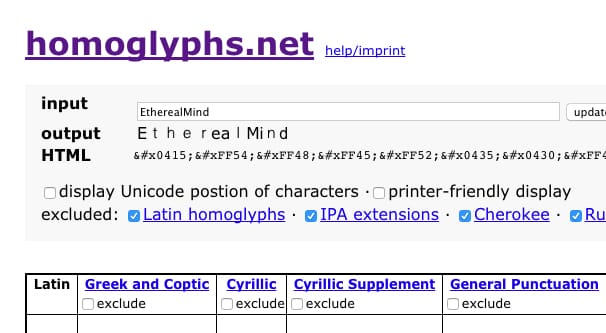
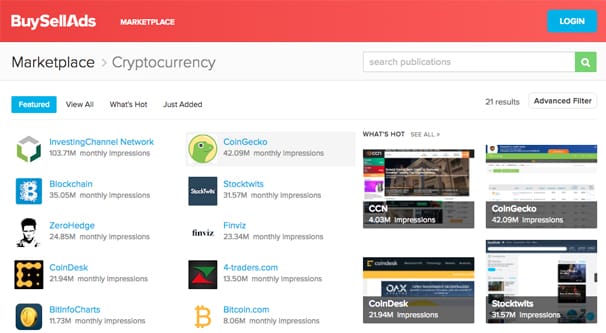
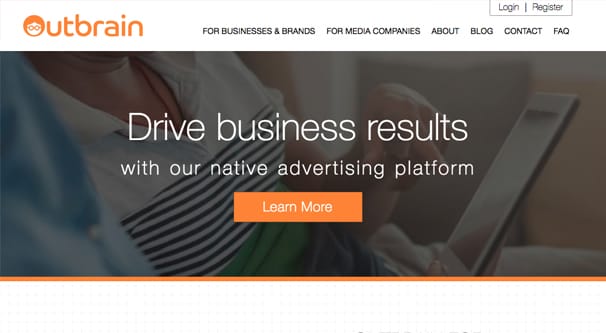

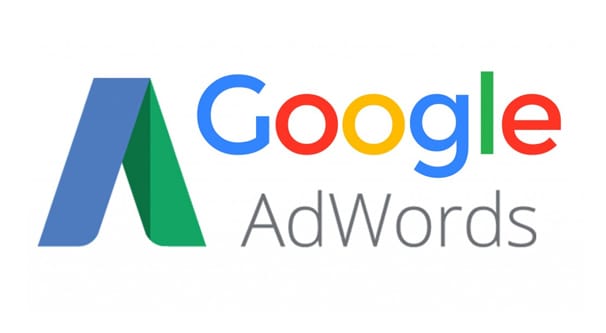

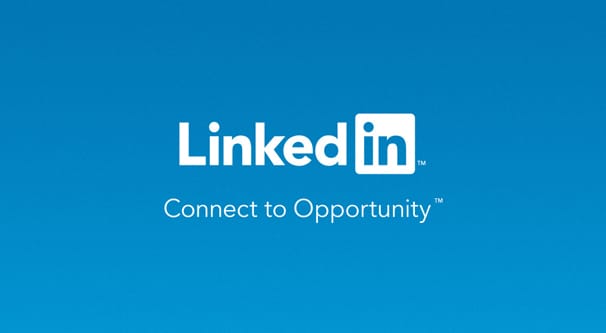
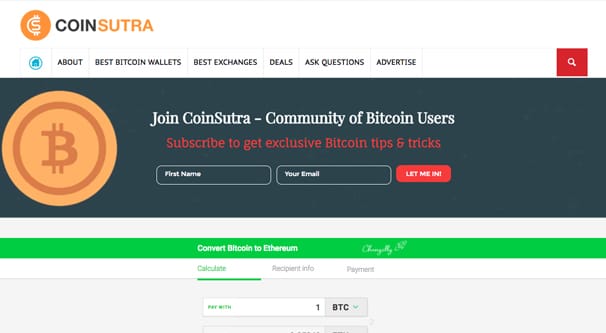


Very helpful information! Will try Google AdWords for sure!